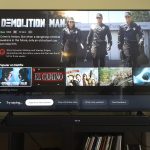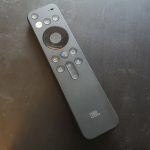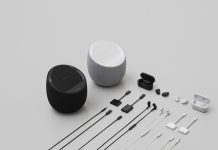JBL’s Link Bar is a soundbar with Android TV built in, making it both the smartest soundbar and the largest Chromecast. Being a device with many features rolled into one, the question is whether it’s greater than the sum of its parts, or simply a jack of all trades.
I had the Link Bar for about three weeks as my main TV audio device, and had plenty of time to get to grips with how it works, how it sounds, and the overall Android TV experience.
Setup
The JBL Link Bar requires as few as two cables – one for power and one HDMI cable plugged into the ARC port on your TV. In case a HDMI ARC port isn’t available, the soundbar also supports optical connections – however it’s worth noting that the soundbar won’t output Android TV video while connected this way. On the software side, setup is much the same as setting up any Android TV device – the soundbar can pair up with your Android phone and automate the setup.
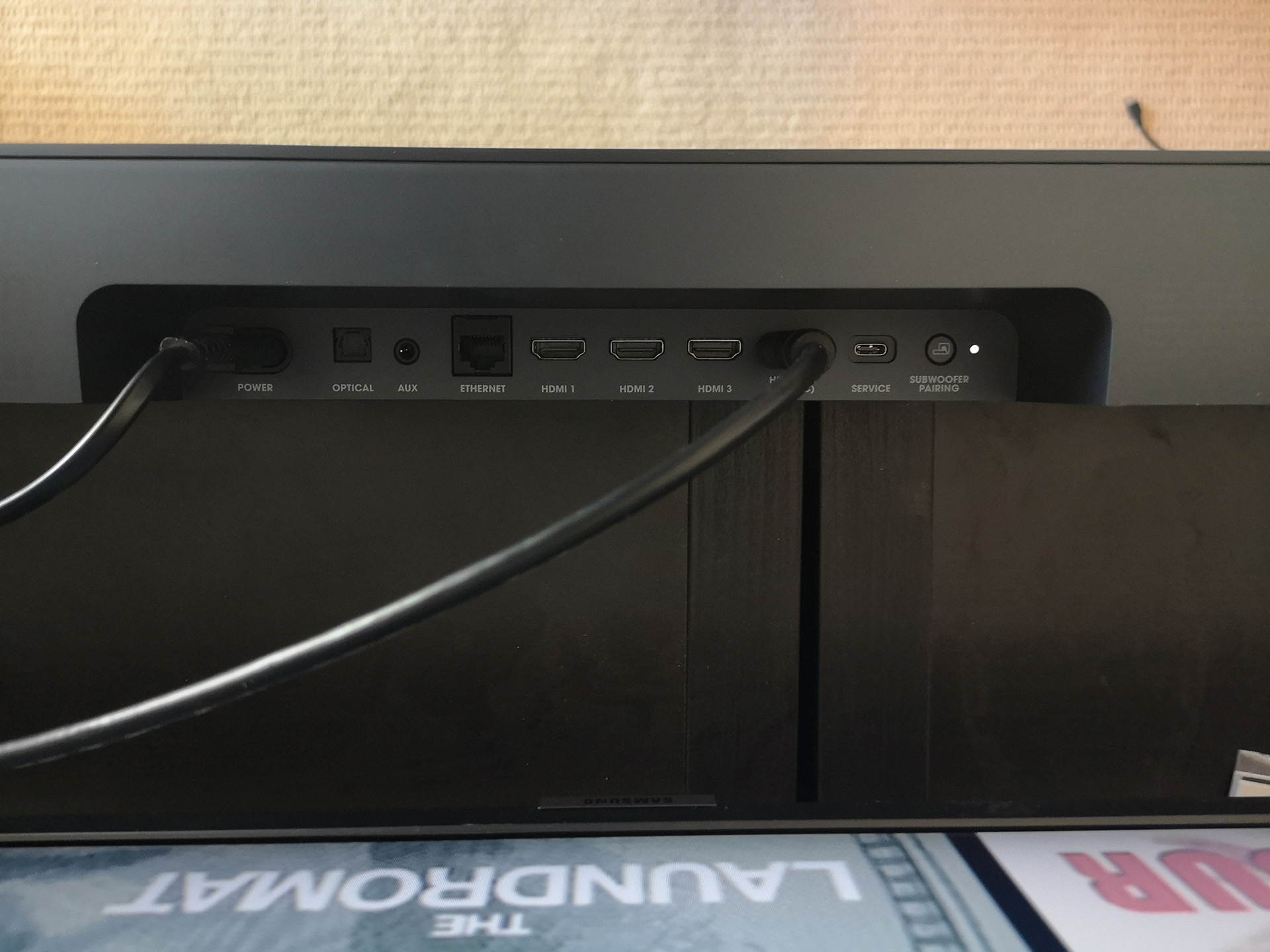
Pairing JBL’s wireless SW10 sub-woofer to the Link Bar was very easy as well – simply press the connection button on the back of the sub-woofer and the same on the Link Bar, and everything is done automatically.
Software
JBL’s implementation of Android TV can be slightly laggy until it caches thumbnails, and there’s slight but noticeable delay when scrolling around apps and the on-screen keyboard. It’s not a complete deal-breaker, but it’s disappointing that the experience isn’t a little more seamless.
Android TV supports all the major apps you want, and then some. Netflix, Stan, Spotify, YouTube and Twitch are my most used apps, and they all work great, although they do suffer from lag while loading thumbnails and other content.
The soundbar also accepts direct Bluetooth connections, so you can easily pair it to your phone and listen to music – although just using the Spotify app seems like a better option, since it has a better user interface and provides better sound quality.
Google Assistant works as well as any other smart speaker I own, but it can be slightly slower to respond than the others.
Sound Quality
For the purposes of this review I was also sent a JBL SW10 wireless subwoofer to pair with the soundbar. The soundbar’s sound quality is decent, but it didn’t blow me away. The midrange frequencies are noticeably lacking, and instead, the soundbar sounds like it boosts high and low frequencies substantially.
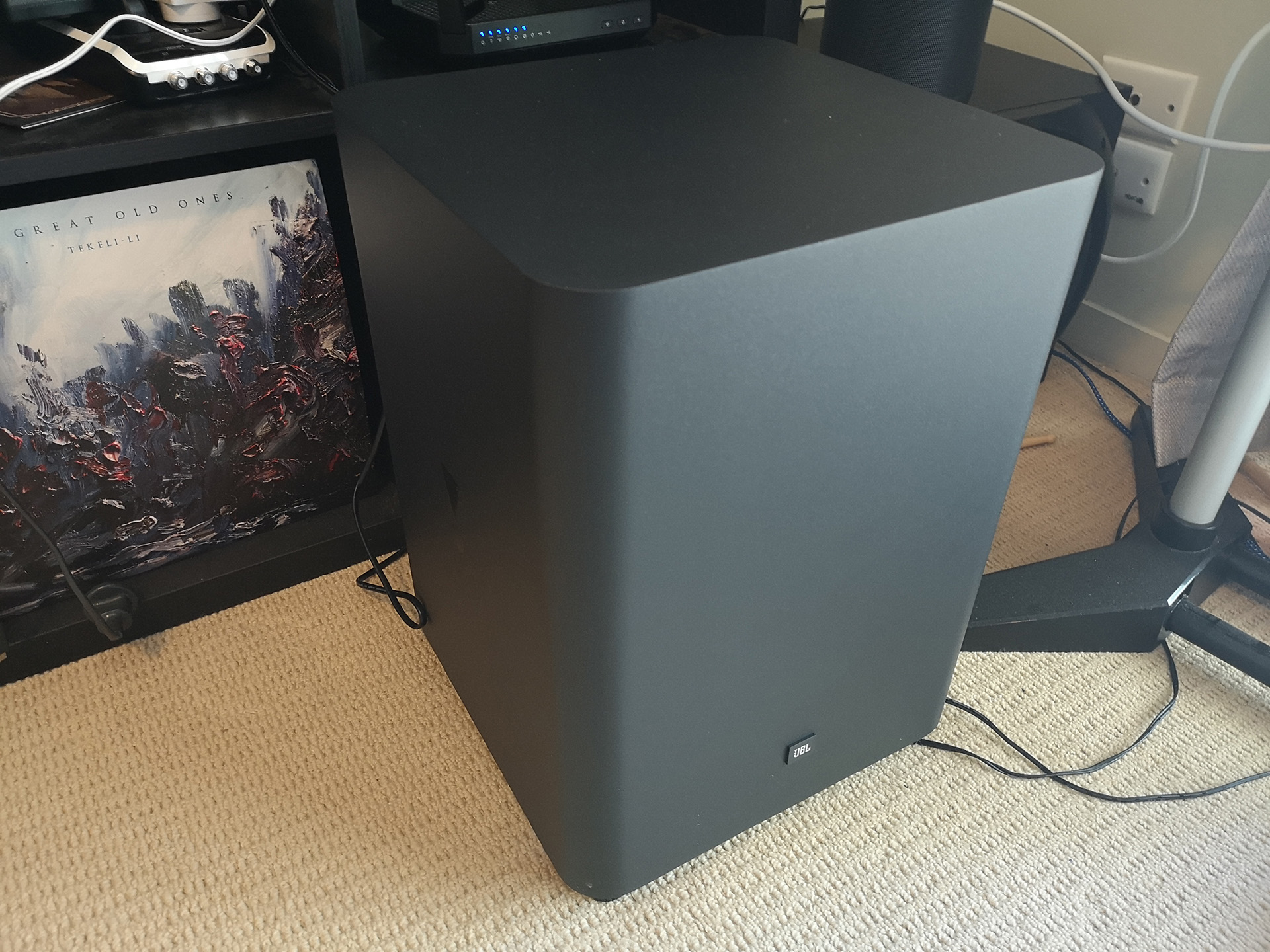
Having given the soundbar a thorough run through my Spotify playlists, I would say that music is not its strongest suit. The speakers sound as though they are tuned more for spoken voice – which makes sense for its primary use case – but I would’ve liked to hear a bit better quality for music as well.
Irving Force’s Population Control Unit: MK-12 is a synthwave banger that sounds quite good on the JBL Link Bar. The meaty bass comes through well, while the higher frequencies balance it out. ALEX and Tokyo Rose’s collaboration Antagonist would be the counterpoint in the same genre. On my regular speakers, the song comes through as a ‘wall of sound’ effect, but the scooped EQ on the JBL Link Bar takes some of the punch out of it.
Listening to something more poppy like Carly Rae Jepsen’s Boy Problems, the JBL Link Bar shines a bit brighter. Carly’s vocals cut through nicely, and the cymbals are very evident. More dense pop anthems like CHVRCHES’ The Mother We Share suffer a little, however, as the missing midrange hides some of the synthesizer phrases.
Moving onto rap, DJ Khaled’s banger Nas Album Done sounds fantastic – the heavy bass contrasted by shimmery cymbal hits and Nas’ hard hitting bars cutting in between them makes the Link Bar a great choice if you primarily listen to rap. Deltron 3030’s more atmospheric City Rising From The Ashes also sounds great – although the quieter background samples in the song definitely get pushed further back.
If you’re into heavier music, the JBL Link Bar is hit-and-miss. Devin Townsend’s Kingdom sounds really flat – as though the wall-of-sound production style Devin employs overwhelms the Link Bar. On the other hand, if you prefer your lyrics screamed at you like I do, then the Link Bar really delivers. Songs like Wormwitch’s Disciple of the Serpent Star or The Black Dahlia Murder’s What A Horrible Night To Have A Curse sound great, with punchy drums, meaty guitars, and harsh vocals cutting over the top of everything.
Watching movies and TV shows through the Link Bar works great. It’s clear that this soundbar is tuned primarily for movie and TV consumption. Movies like The Hobbit: An Unexpected Journey have good separation between the soundtrack and speech, and action sequences like spaceship battles in Battlestar Galactica offer a great audio experience.
Should you buy it?
The JBL Link Bar is a few devices rolled into one – a smart speaker, a soundbar, and an Android TV box. It performs decently, but it’s a jack of all trades and master of none. It’s a bit pricey too – starting at an RRP of $600 for the soundbar alone, and about another $400 to add the subwoofer, it gets difficult to recommend.
If you’ve already got a smart TV and no need for the Android TV functionality, the Link Bar gets even harder to recommend over cheaper options, or similarly priced options with better sound quality. Android TV is better than the majority of smart TV user interfaces in my opinion, but the experience isn’t as smooth as I’d like it to be.
However, if you’re running an older TV with no smart capabilities and no other audio options than the built-in TV speakers, the JBL Link Bar would solve all of your problems with just one product, and that is quite an attractive proposition.


